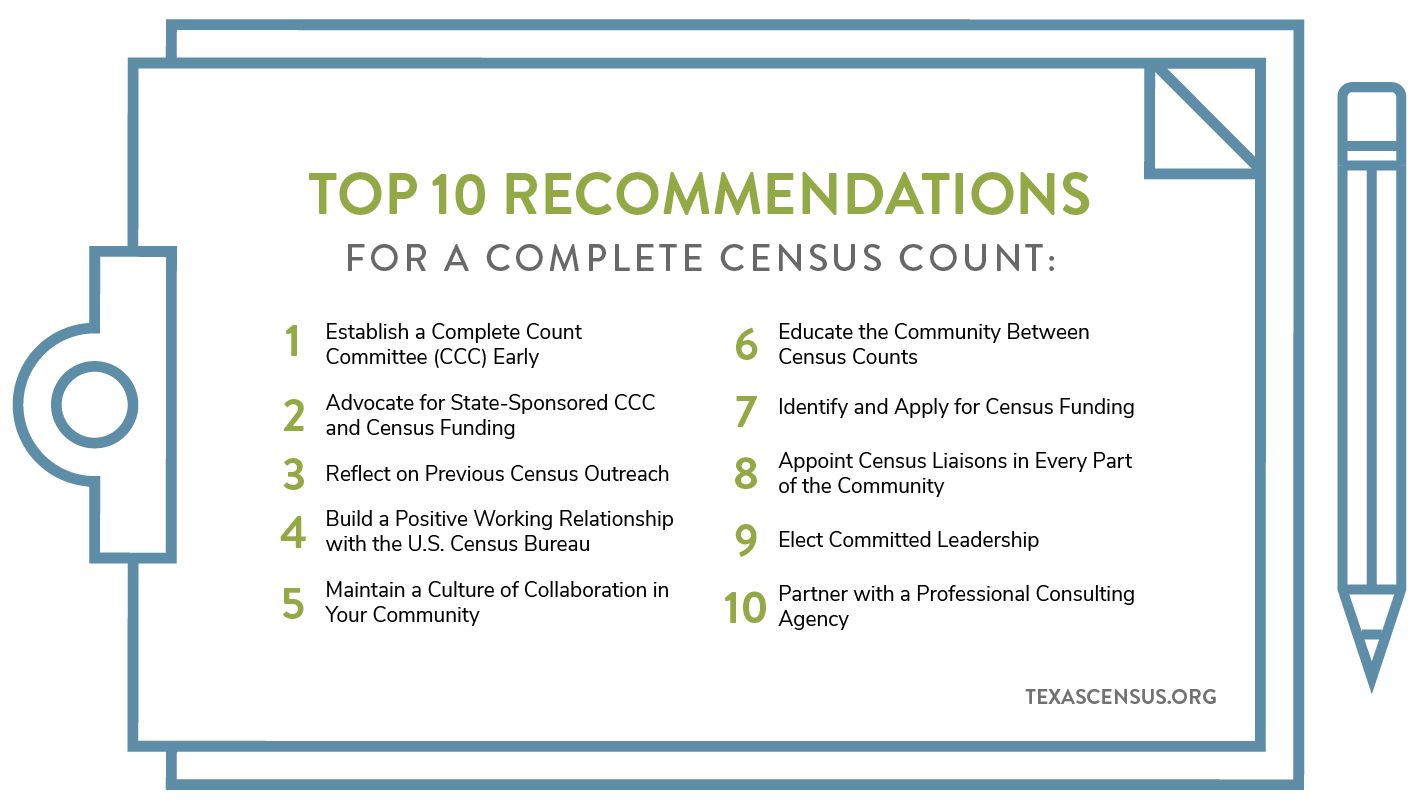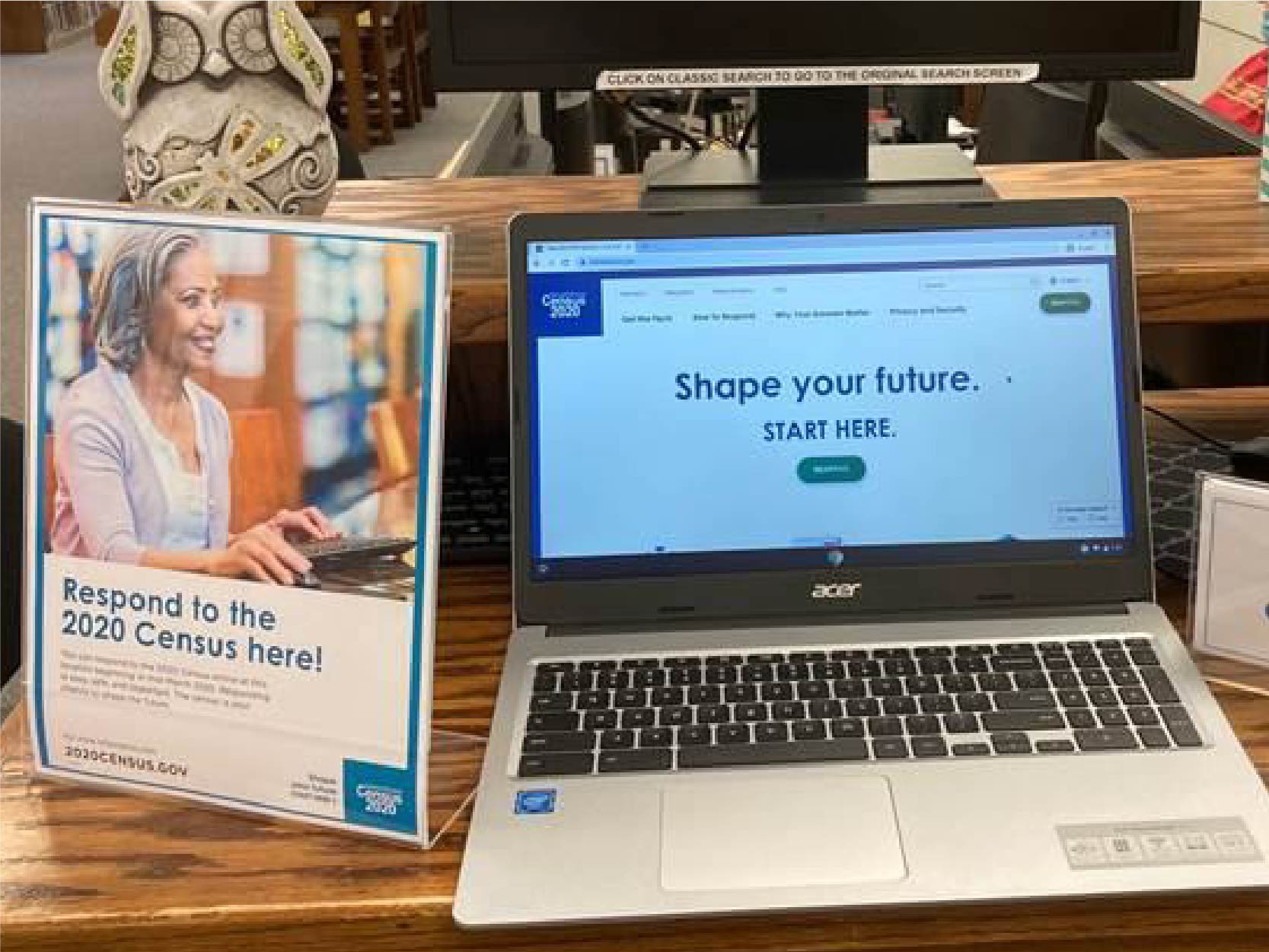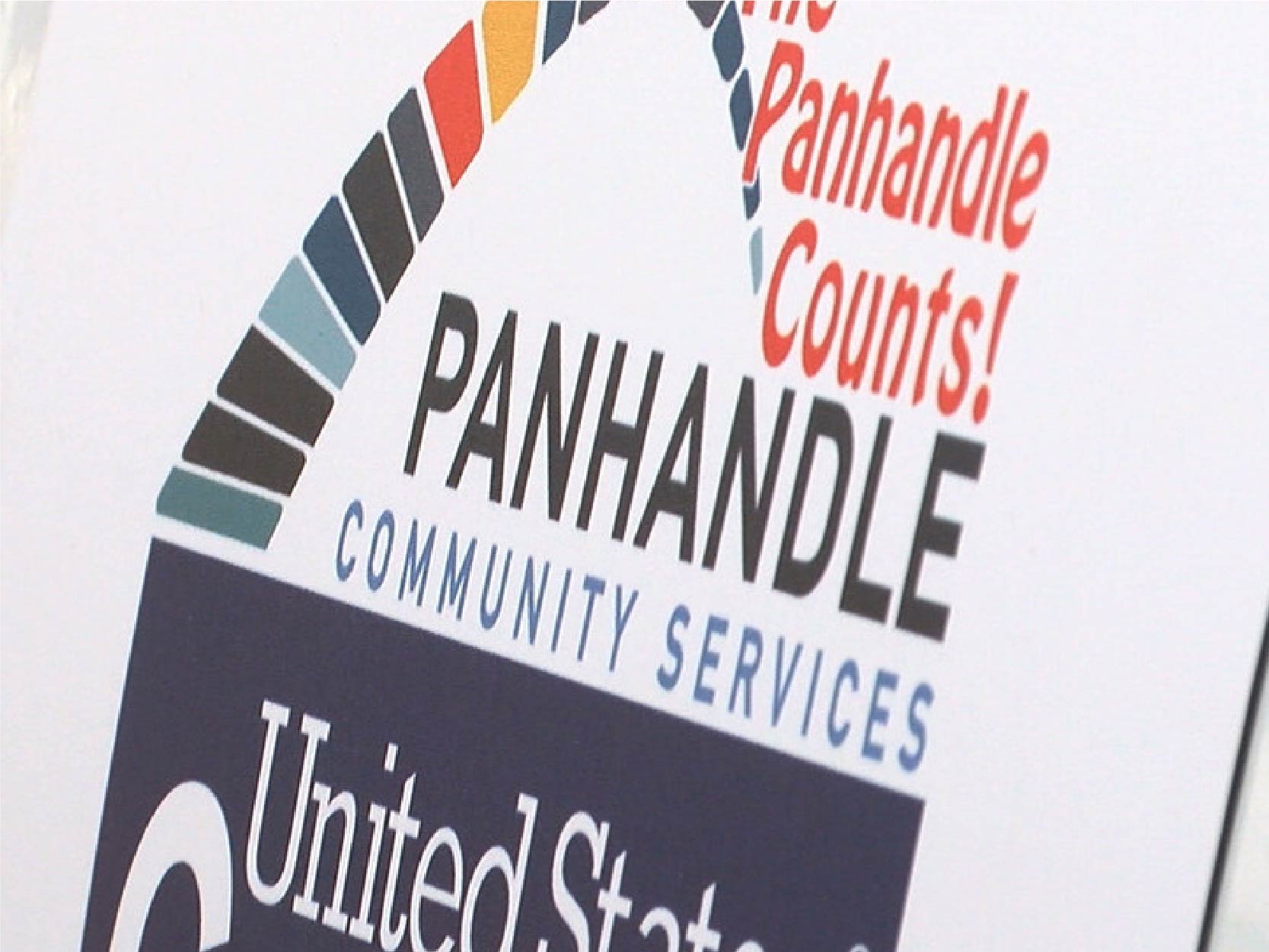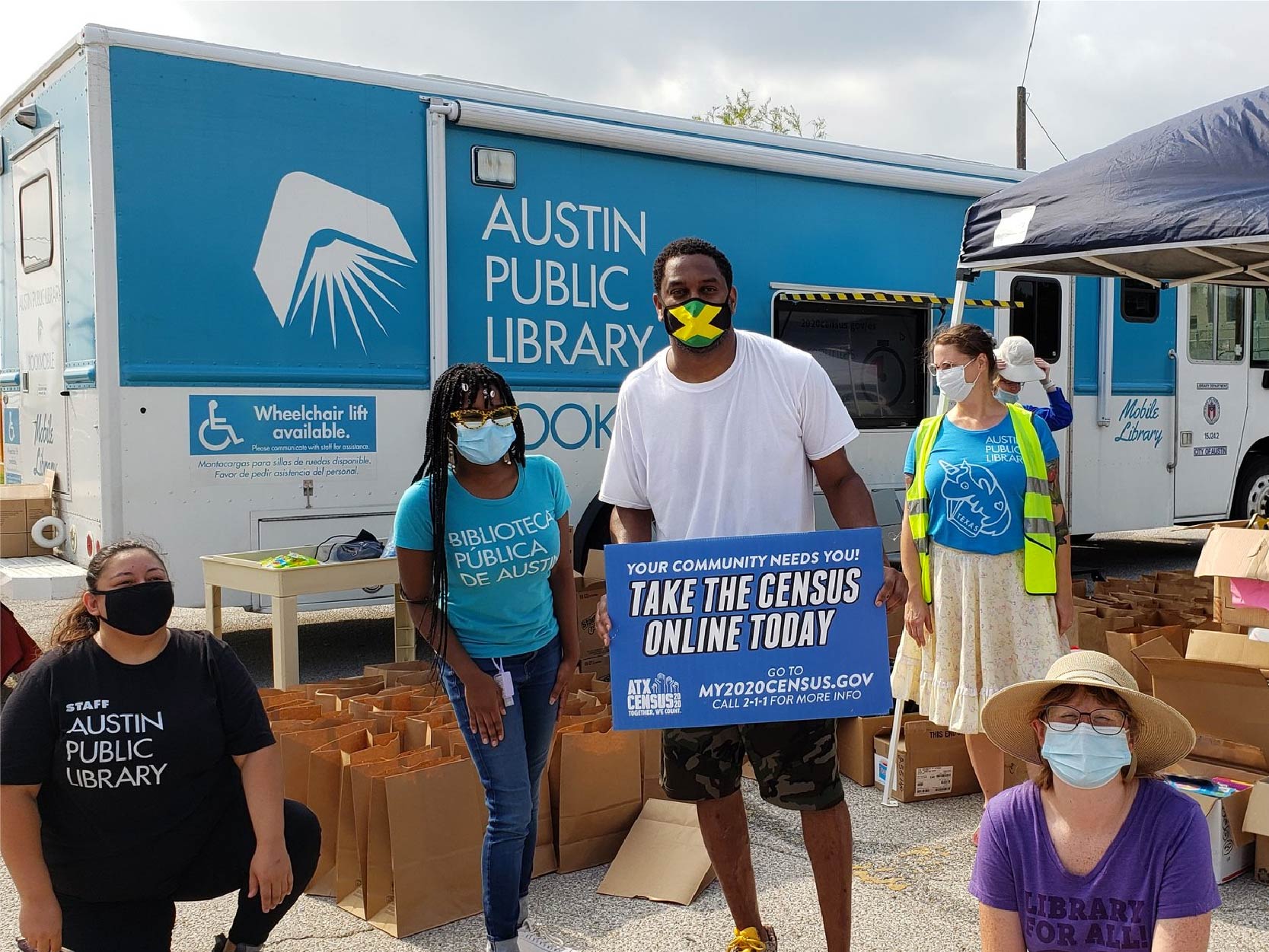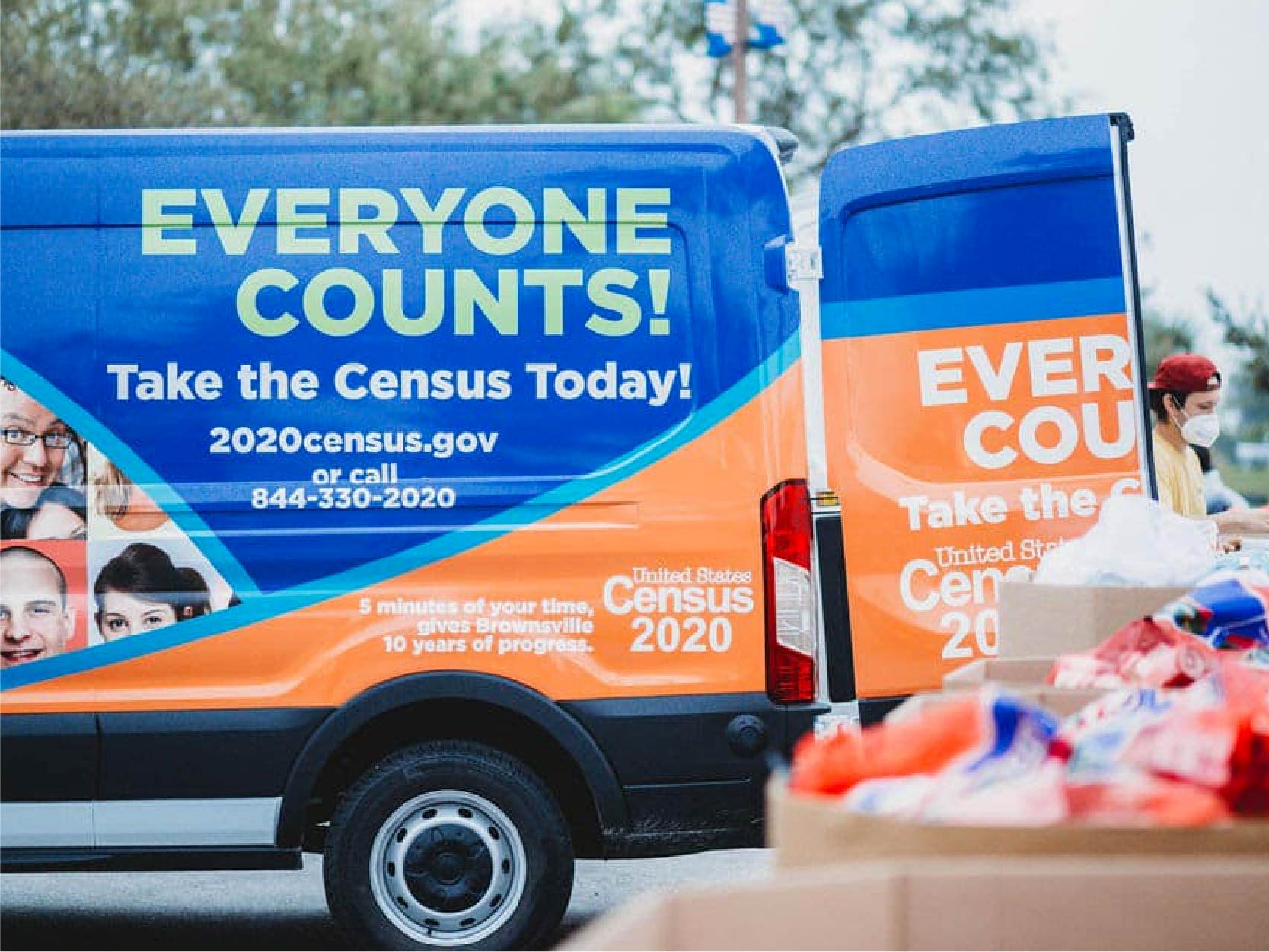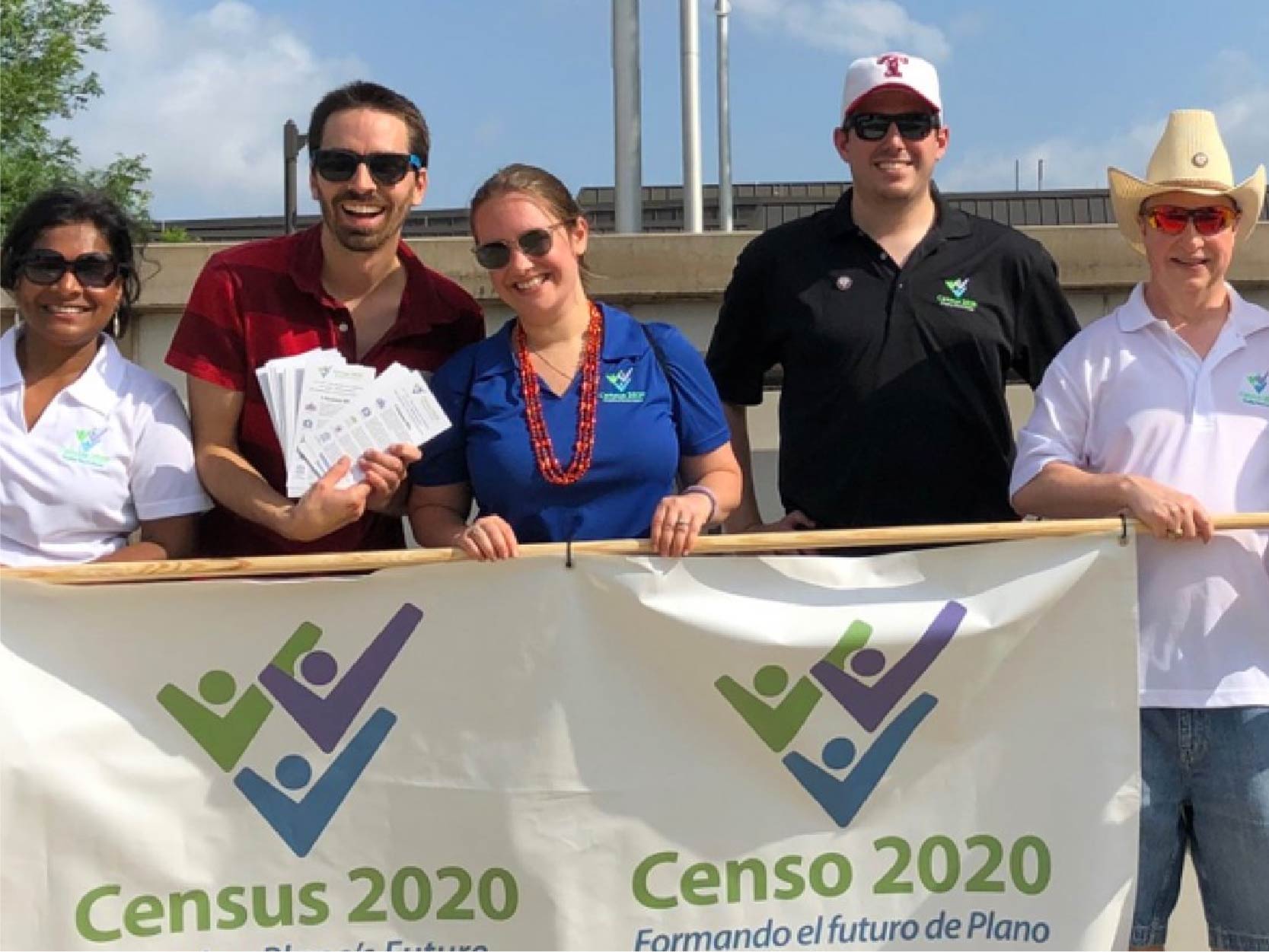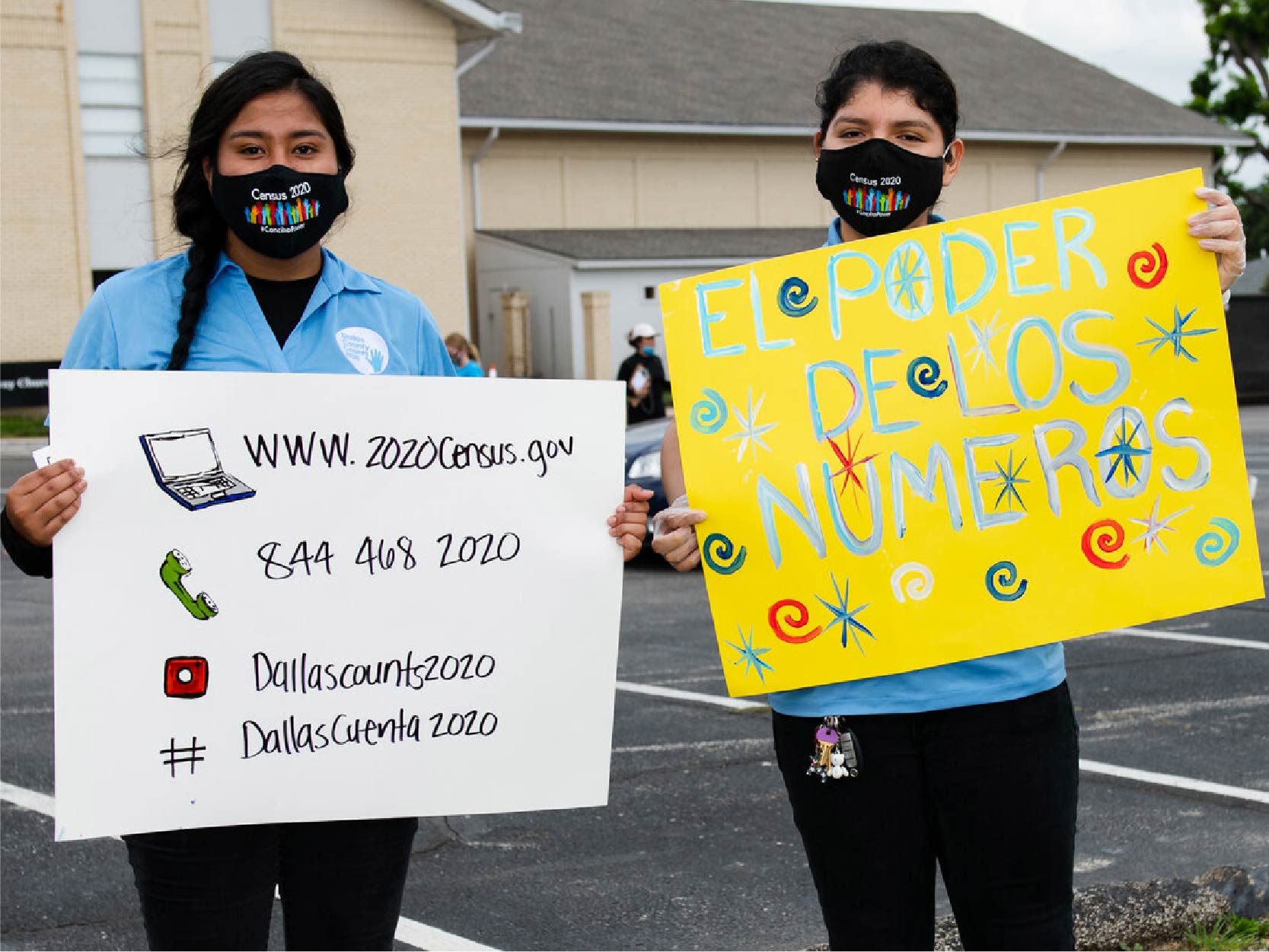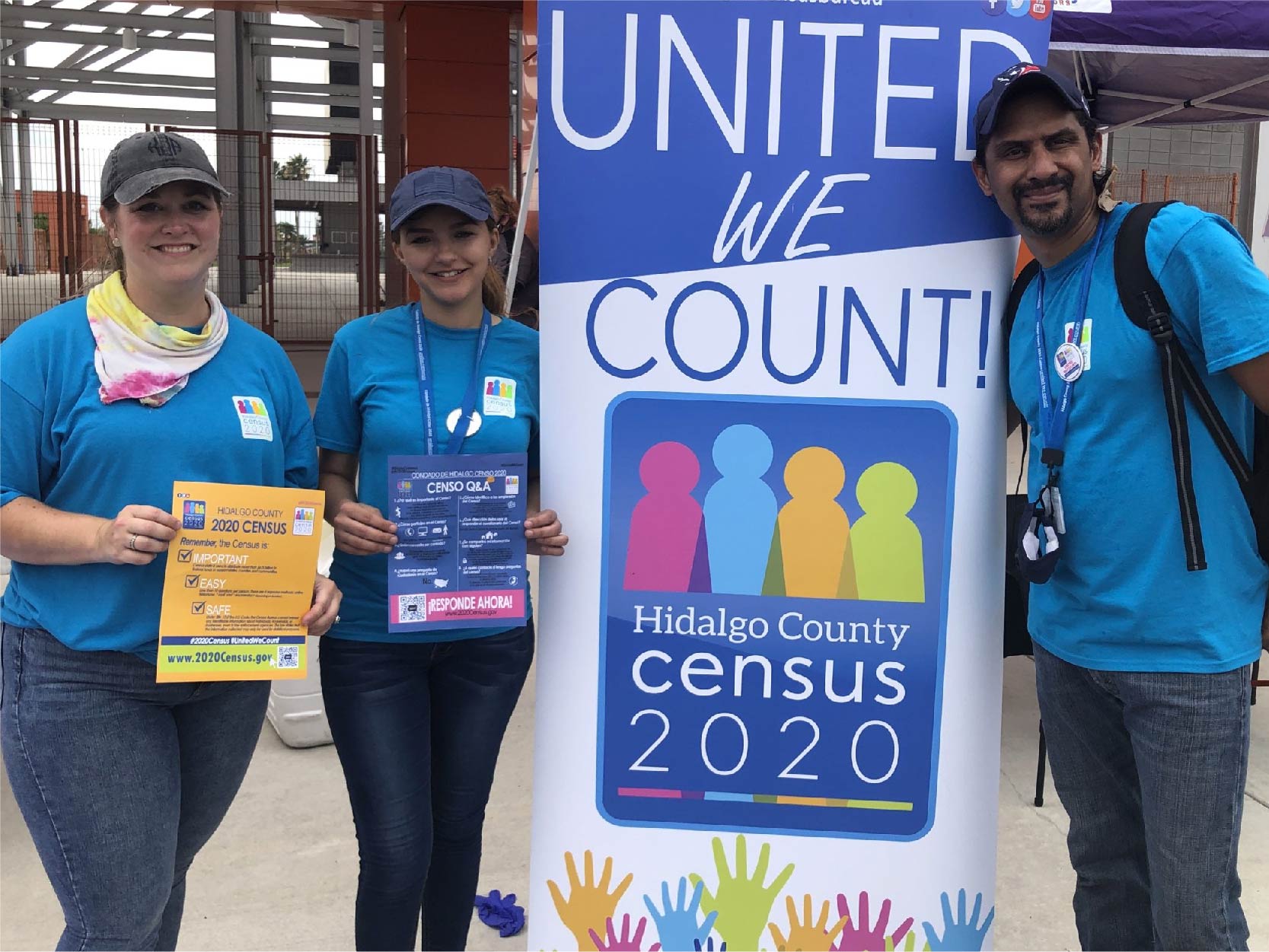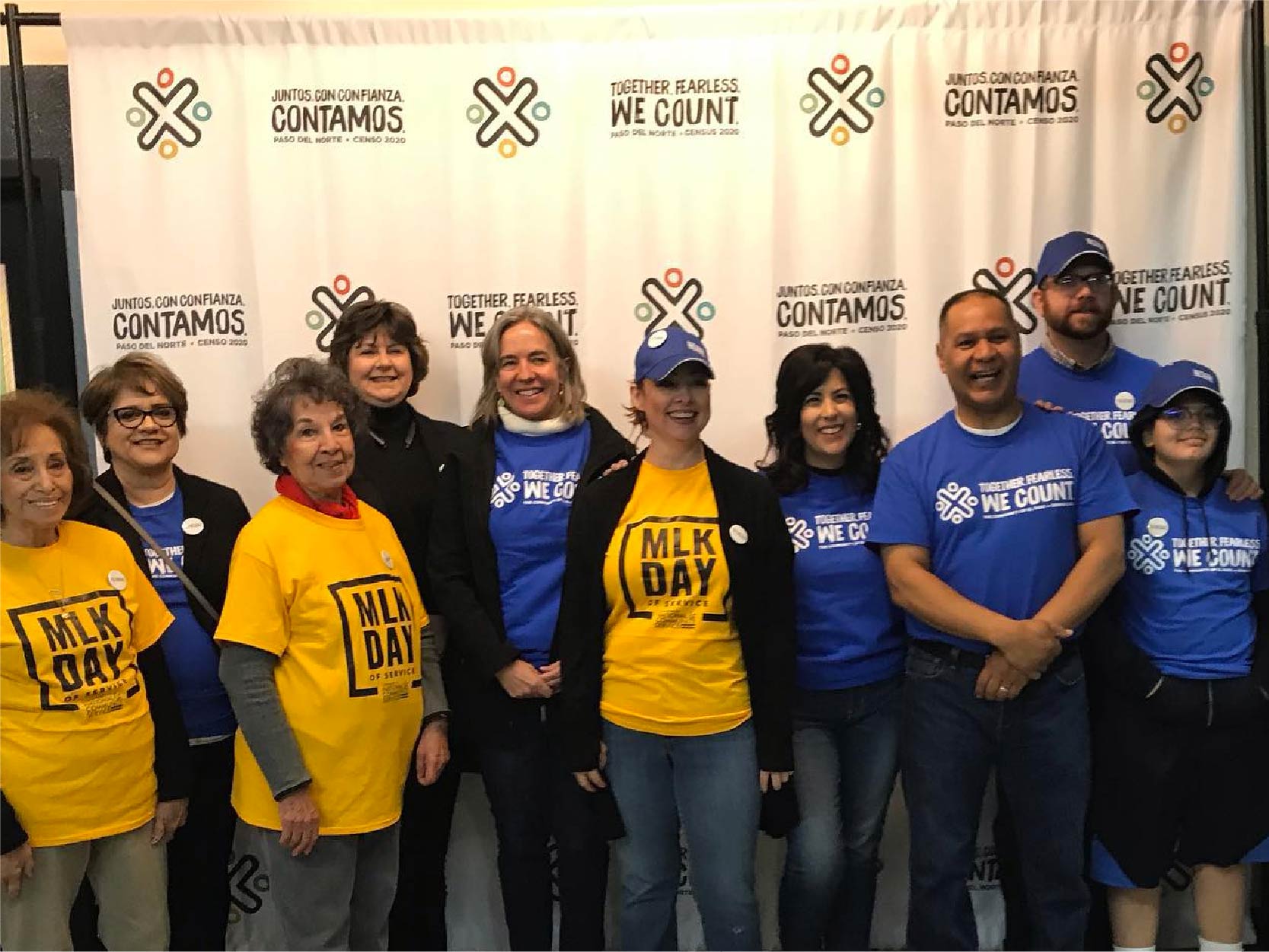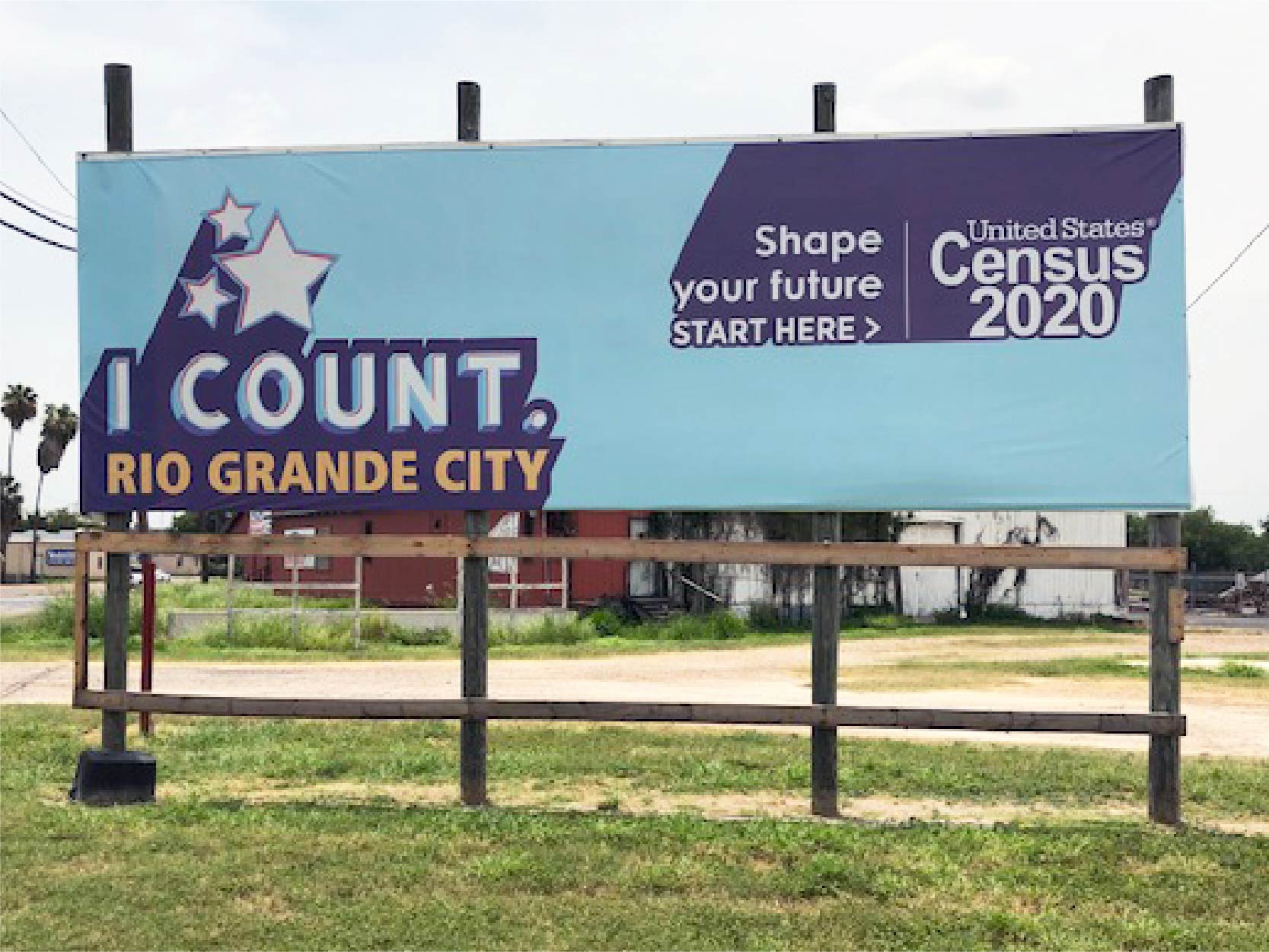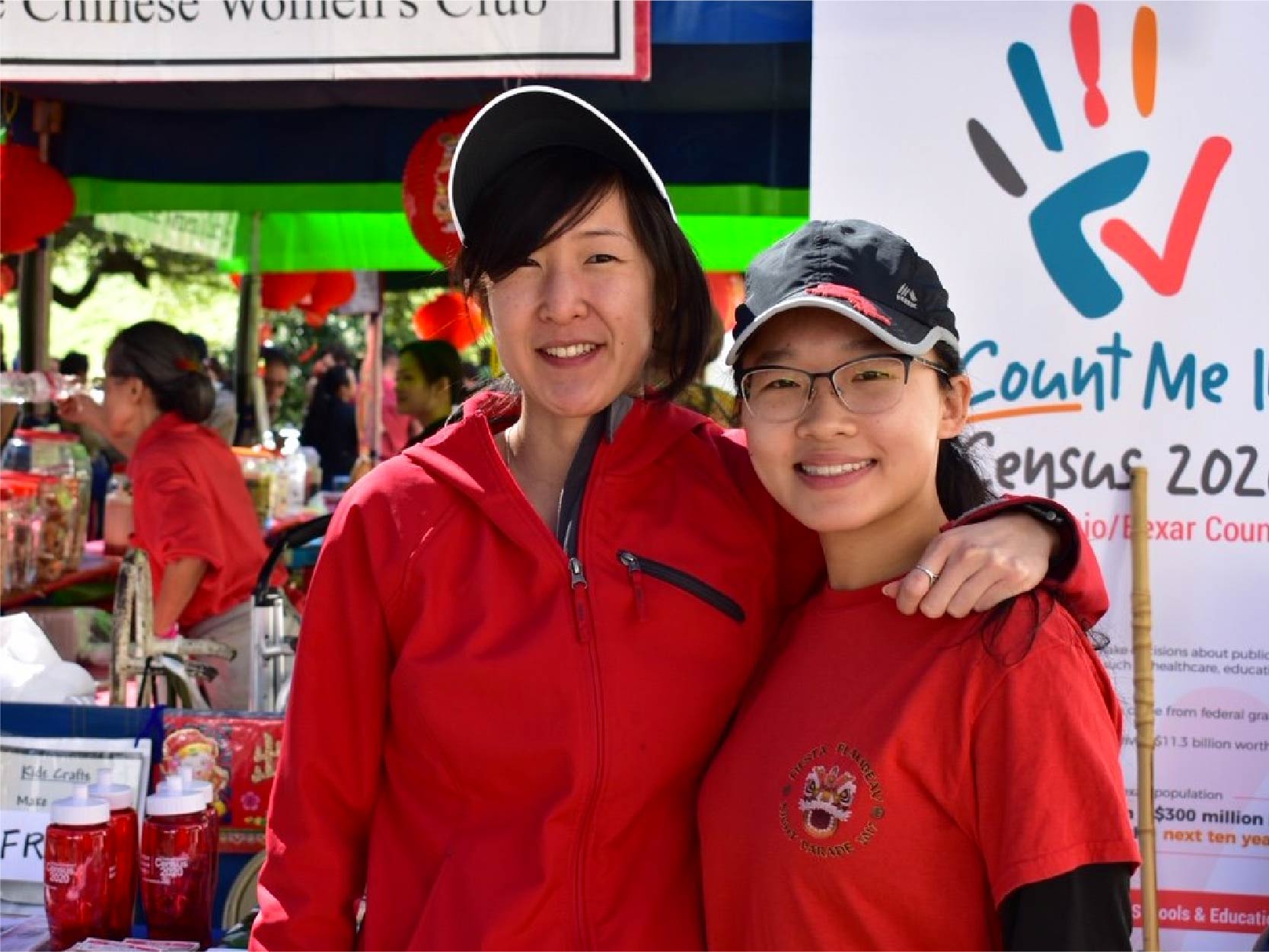Looking Ahead: 2030 Texas Census
Top 10 Recommendations for a Successful Census Count
We interviewed fifty Census champions from across Texas to determine regional trends in Census outreach, effective strategies, lessons learned, and recommendations for the 2030 Census. Here are the top recommendations from Census champions to ensure an accurate Census count in your community!
1.
Establish a Complete Count Committee (CCC) Early
Many CCCs were created through City and County government partnerships one to two years ahead of the 2020 Census. Starting a CCC at least two years in advance of the 2030 Census allows more time to recruit trusted voices and community organizations, identify hard-to-count communities, educate the community about the Census and its benefits, and to raise funds needed for outreach. Download this guide and learn how to establish a CCC.
Explore CCCs work across the state of Texas!
2.
Advocate for State-Sponsored CCC and Census Funding
In 2019, Texas lawmakers did not pass bills that would have provided for a state-level CCC and dedicated Census funding. Policy organizations and elected leaders should campaign for state-level investment in the two to three legislative sessions prior to the 2030 Census. With adequate state funding, Texas would have gained more representation and federal funding if there was a complete count in the 2020 Census. The population is expected to continue growing through the next decade, setting a precedent that Texas officials must prepare to invest in the 2030 Census.
3.
Reflect on Previous Census Outreach
Review communities with low Census self-response to identify and target hard-to-count (HTC) communities. Consider replicating previous strategies that were effective in encouraging these communities towards Census completion. One of the most effective strategies for the 2020 Census was utilizing trusted voices to educate their communities about the importance of the Census and resources it brings to the community. This was achieved through both face-to-face and digital outreach at places people gathered like grocery stores, schools, food banks, and community gatherings. The digital outreach utilized PSAs in multiple languages and focused on how the Census was essential to supporting services vital to the community.
Explore examples:
4.
Build a Positive Working Relationship with the U.S. Census Bureau
Support the Census Bureau in your community by participating in the Local Update of Census Addresses Operation (LUCA) approximately three years ahead of the 2030 Census to ensure accurate addresses are on file. Once a CCC is established, contact the Census Bureau’s regional office to establish a partnership. It is important to outline and agree on each entity’s specific roles and responsibilities to avoid duplicating efforts and present a single, united front to the community.
Explore examples:
5.
Maintain a Culture of Collaboration in Your Community
Stay in touch with key organizations and leaders that were Census champions in your area to collaborate future Census efforts. Make a joint commitment to continue educating the public about the importance of the Census and prepare for the 2030 Census throughout the 10 years in between.
6.
Educate the Community Between Census Counts
One message that resonates most with many residents is explaining the many benefits of the Census. Seize every opportunity to recognize improvements to the community as a result of an accurate Census count. For example, new school buildings or roads should have signage educating the public that the project was possible because of Census participation. You can also distribute press releases about community improvements and relate it to federal funding from the Census throughout the ten years in between.
7.
Identify and Apply for Census Funding
Securing funding was a big challenge during the 2020 Census because the Texas government did not allocate any money prior to 2020 for outreach. Major funders of 2020 Census outreach included City and County governments, the Texas Counts Pooled Fund, and local and statewide foundations. Overall, fundraising as much as possible will increase the total budget for outreach efforts and emergencies. Contact the CCC funders and ask if they can make any financial commitments to support Census outreach again in 2030. Begin outreach efforts to city, county, and state governments several years prior to 2030 in order to secure the funding needed well in advance of the actual Census. This allows for a more robust outreach program and frees up resources to be focused on counting every Texan.
Explore examples:
8.
Appoint Census Liaisons in Every Part of the Community
Member organizations of a community’s CCC — such as educators, pastors, healthcare providers, and other local leaders — should continue engaging their constituents about the Census over the next ten years. The ideal Census Liaison is a resident working directly in underserved communities and has established trust and rapport. Working with these individuals throughout can establish a robust, well-connected CCC to assist in outreach efforts.
Explore examples:
9.
Elect Committed Leadership
The leader(s) of a CCC should be trusted voices that represent the HTC communities and have the time and desire to dedicate to Census outreach. Members of the CCC can nominate and elect their peers to serve on a Leadership or Action Committee, similar to a Board of Directors, to make final decisions on behalf of the CCC.
Explore examples:
10.
Partner with a Professional Consulting Agency
Hiring a third party to assist with planning and implementing Census outreach reduces the burden on CCC member organizations that are also balancing responsibilities outside of the Census. A professional consultant or agency with local ties to the community can help organize and manage the CCC, conduct messaging research, execute both paid and earned media strategies, target and engage with HTC communities, and assist in fundraising efforts for the benefit of the community.
Explore examples:
